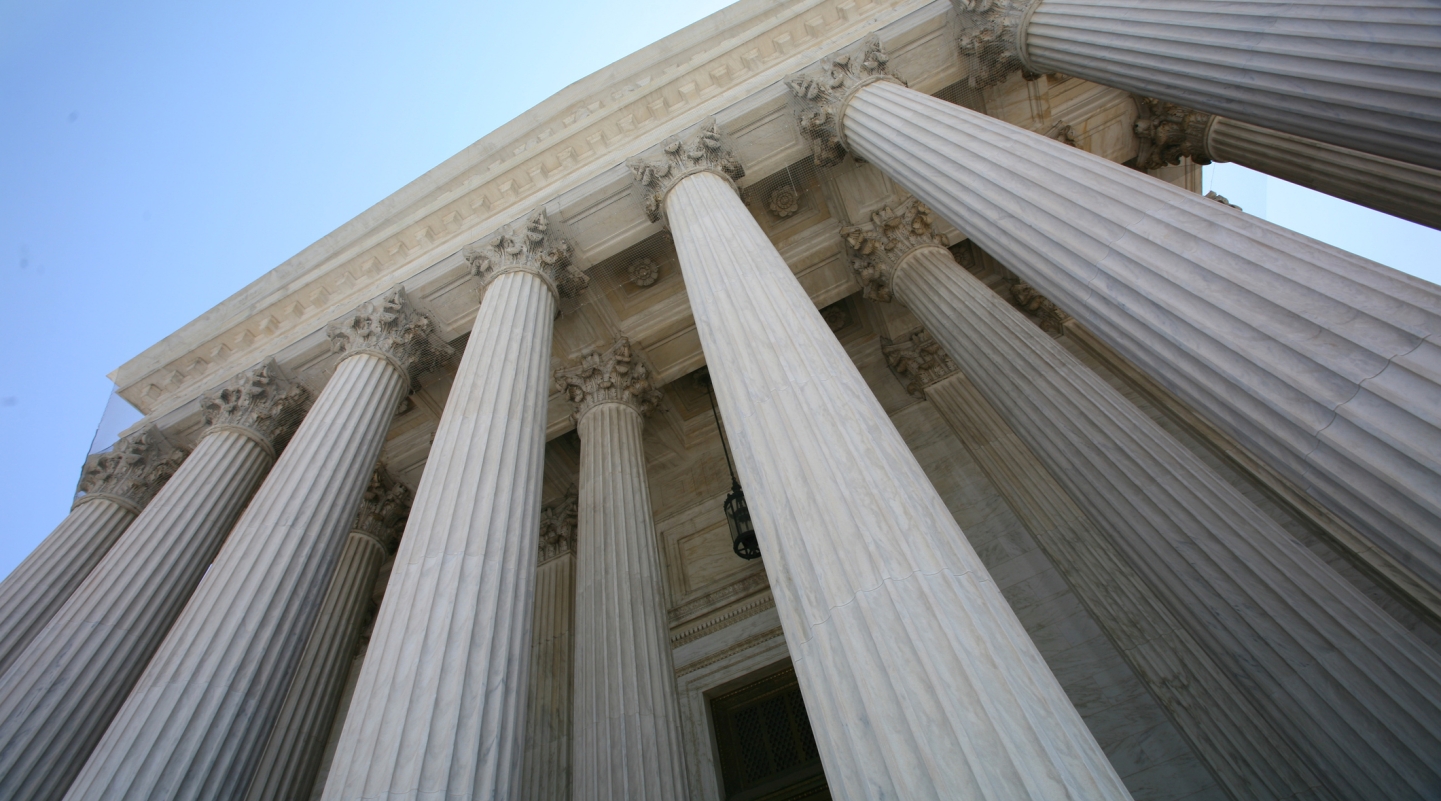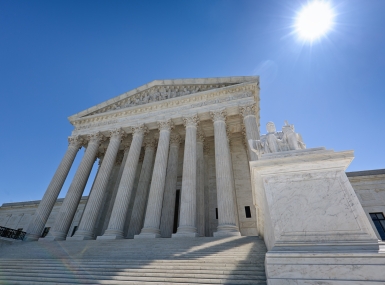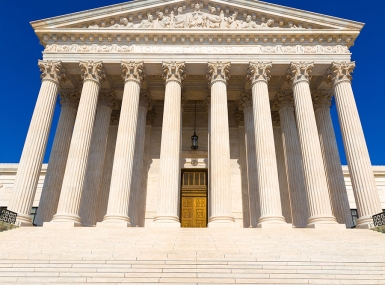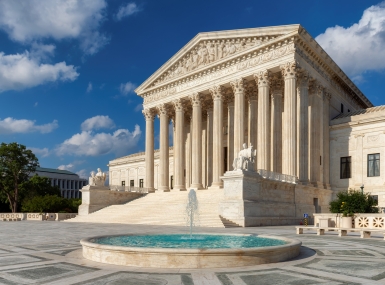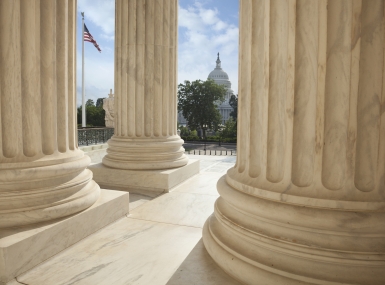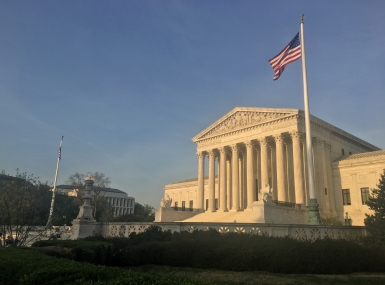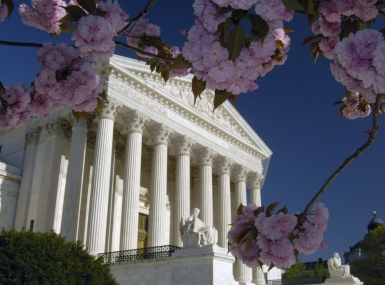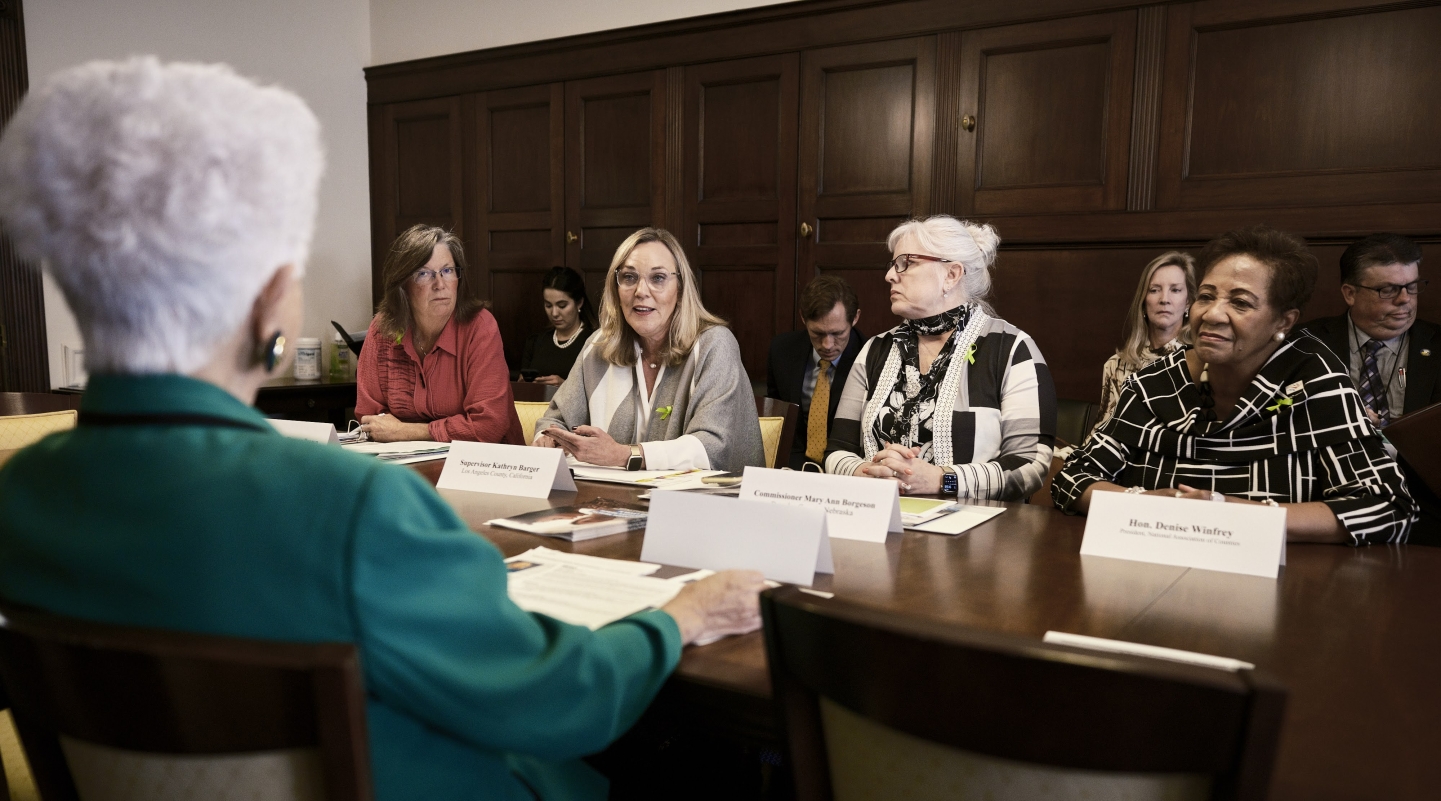Supreme Court Advocacy Hub
Sharing the county perspective on key Supreme Court cases

As the U.S. Supreme Court addresses some of the most complex public policy issues of the day, it is essential that county officials are aware of the Supreme Court’s docket and offer our perspectives on the practical, frontline realities on county-related legal issues.
Through our partnership with the Local Government Legal Center, NACo works to raise awareness of the importance of Supreme Court cases to county governments and help shape the outcome of cases of significance at the Supreme Court through persuasive and effective advocacy.
2024-2025 Supreme Court Term

NACo Legal Advocacy: City of Seattle et al. v. Kia/Hyundai
The question at hand in City of Seattle et al. v. Kia/Hyundai is whether or not the Federal Motor Vehicle Safety Standard preempts state tort claims brought forth by local governments alleging that Kia and Hyundai’s failure to install “reasonable” anti-theft technology constitutes negligence and public nuisance.
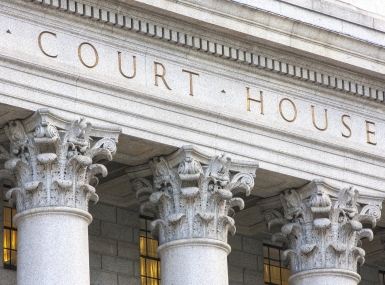
NACo Legal Advocacy: Perttu v. Richards
Perttu v. Richards has implications on the Prison Litigation Reform Act (PLRA) and could increase the amount of Section 1983 inmate-initiated cases against county jails that reach federal court, ultimately resulting in counties having to expend resources on frivolous lawsuits.

NACo Legal Advocacy: McLaughlin Chiropractic Associates, Inc. V. McKesson Corporation
McLaughlin Chiropractic Associates, Inc. V. McKesson Corporation could make it more difficult for counties to challenge FCC orders, many of which have taken steps to preempt and curtail local authority by limiting counties’ abilities to manage their own right of way and assess fair market value permitting and impact fees on providers seeking to construct, modify or extend telecommunications infrastructure in their communities.

NACo Legal Advocacy: San Francisco v. Environmental Protection Agency (EPA)
San Francisco v. Environmental Protection Agency (EPA) has implications for the ability of county governments that own and operate wastewater treatment facilities to comply with National Pollutant Discharge Elimination System (NPDES) permit requirements.

NACo Legal Advocacy: Lackey v. Stinnie
Lackey v. Stinnie will impact the ability of state and local governments to avoid paying litigation fees in a civil rights case if they change their conduct (i.e. repeal a law) after a court has granted a preliminary injunction.

NACo Legal Advocacy: Garland v. VanDerStok
Garland v. VanDerStok has implications for the ability of county law enforcement to uphold public safety and investigate crimes involving ghost guns.

NACo Legal Advocacy: Stanley v. City of Sanford
Stanley v. City of Sanford will impact the ability of county governments to balance budgets by reducing or eliminating post-employment benefits for disability retirees.
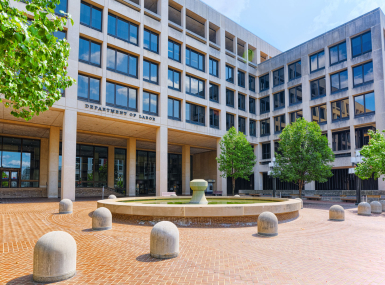
NACo Legal Advocacy: EMD Sales, Inc. v. Carrera
EMD Sales, Inc. v. Carrera could make it more difficult for county governments to prove exemptions under the Fair Labor Standards Act (FLSA), which would increase the potential for costly litigation.
Supreme Court News and Analysis for Counties
Explore Past Supreme Court Terms
Lindke v. Freed/O'Connor Ratcliff v. Garnier
Clear guidelines governing when public officials' use of personal social media accounts constitutes state action can help local governments to avoid liability without infringing on the First Amendment rights of their public officials or citizens.
Muldrow v. St. Louis
In a season of acute workforce shortages, the ability to make lateral transfers without fear of legal action is an important tool for county governments to ensure we have appropriate staffing to meet our various responsibilities for safeguarding the safety, health and wellbeing of our residents.
Sheetz v. El Dorado County
Exaction or impact fees are an important way for local governments to balance the benefits of growth with its impacts on the pre-existing community. Limiting the ability of counties to legislatively enact generally applicable development impact fees would impede our efforts to protect the health and welfare of their communities while ensuring that those who create the need for new community infrastructure fairly bear the costs.
City of Grants Pass v. Gloria Johnson
As communities across the country address the complex and nuanced issues of housing shortages and homelessness crises, it is critical for localities to retain the ability to make tough policy choices unobstructed by court-issued mandates.
Gonzalez v. Trevino
This case has implications for the ease with which private citizens can file frivolous retaliatory arrest claims against county law enforcement, which could lead to costly litigation for cities and counties and a chilling effect on public safety enforcement by county agencies.
Chiaverini vs. City of Napoleon
When private citizens file meritless civil rights claims against police for alleged malicious prosecutions, counties can bear significant financial liability and practice of standard law enforcement may see a chilling effect.
Sign up for email updates
Complete the form to receive the latest Supreme Court news impacting counties.
Program Contact


